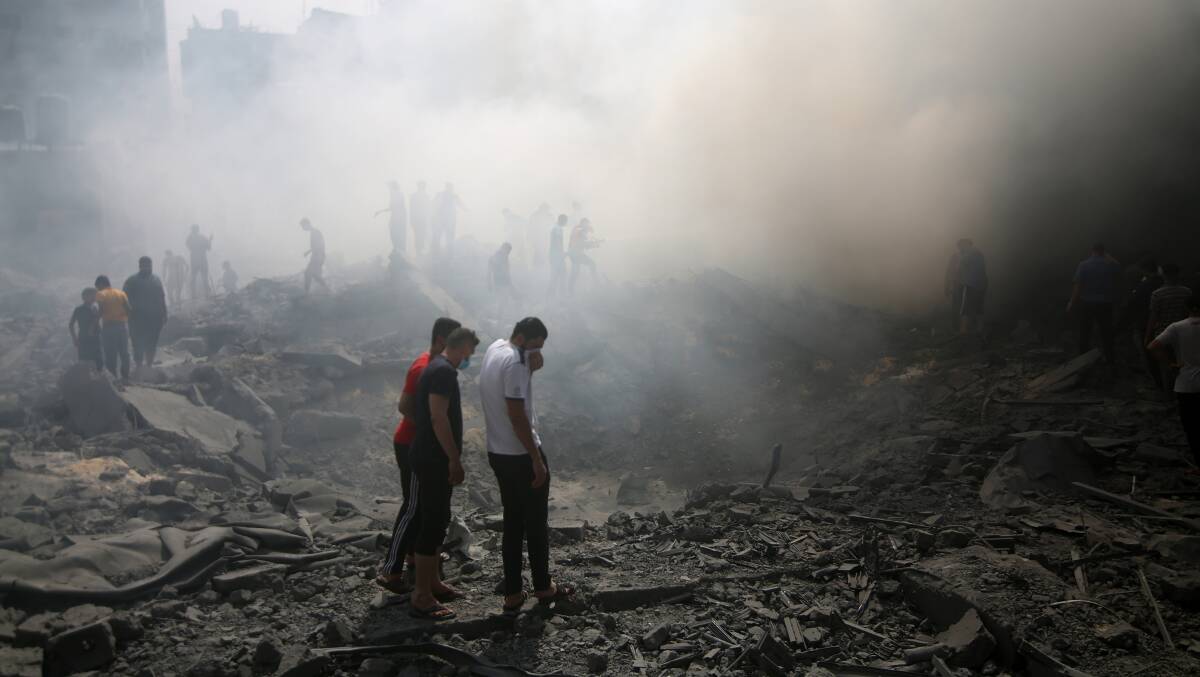The question has been asked for a few weeks: what, ultimately, does Israel expect to achieve with its counterattack in Gaza? Or, to use a current catchphrase, what does victory look like?
Subscribe now for unlimited access.
$0/
(min cost $0)
or signup to continue reading
As Palestinian civilians die, and as non-Israelis begin to forget the unspeakable Hamas atrocity of October 7 that prompted the counterattack, we look to the future and wonder what good will come from this.
Israel says its aim is to destroy Hamas. That is in fact the answer we're looking for, and expecting anything else is unrealistic.
It leads to a series of obvious questions - or objections. Yes, Hamas can be destroyed as an organisation, its tunnels and weapons can be eliminated, and most of its militants can be rounded up or killed in combat. But how many will slink back to their families' flats and pretend to have had nothing to do with the group?
As soon as Hamas is gone, won't it spring back to life, or be replaced by something that's much the same but has a different name? Hamas can be destroyed, but the Palestinian beliefs that created it cannot. The death and suffering arising from Israel's counterattack will only intensify those beliefs, and so will economic deprivation that will be even worse than what Gaza suffered before October 7.
Conceivably, Israel could stay and occupy Gaza, as it did from 1967 to 2005. But to control the place it would need to run it as a police state, with soldiers on every corner. Many would die in that effort, and so would Palestinians.
"If you break it, you own it," the then US secretary of state, Colin Powell, warned president George W. Bush before the second Iraq war of 2003, adapting a rule from American pottery shops. Well, Israel is breaking Gaza, beyond what's already broken there, but is pretty unlikely to take ownership of what's left. More likely, it will at some point, not soon, declare that it has destroyed Hamas and is leaving.

Who, then, would run Gaza is hard to imagine. There's the corrupt Palestinian Authority, which includes the Fatah party. Gazans rejected Fatah in a 2006 election, instead choosing Hamas, which was committed not to living with Israel but destroying it. By this year, most Gazans no longer supported Hamas, blaming it for their economic suffering, but it has allowed no more elections.
The Palestinian Authority runs part of the West Bank, a much larger territory. One idea is that the authority might form part of internationally organised supervision of Gaza with support from many countries. But experts doubt that the rest of the world will want to get closely involved.
Altogether, the Israeli counterattack must leave a mess, a miserable, seething territory that will produce yet more misery and strife in the future - which leads people, again, to wonder what the point is.
But just go back to what Israel is saying: the point is to destroy Hamas. And it can hardly be otherwise.
Many readers will want to raise the injustices that can be offered as explanations for violence emanating from Palestinian society, especially Gaza. But as a practical matter there has been no possibility that Israel could leave the atrocity of October 7 unpunished.
To do so would be to ask for more. And it's not just punishment; it's also elimination of an immediate threat. Yes, Hamas is bound to be followed by new sources of danger to Israel. But - again, as a practical matter - the counterattack is intended to remove a threat that actually exists now, as we saw all too clearly four weeks ago.
There's also emotion. From this distance, we may no longer be so affected by the bloodthirsty butchery of October 7, but consider the depth of distress, anguish and outrage among Israelis. It's useless to tell them they should just move on.
Palestinian civilians are paying for this. They are very much in the positions of Germans and Japanese under US and British bombs in 1944 and 1945, suffering because of the actions of a vicious government that they can no longer control.
However angry Israel may be, it must adhere to international humanitarian law, the rules that are intended to limit suffering in war. It must adhere to them even though Hamas does not.
The military action is and will be endlessly complex, but we can consider bombings at the Jabalia refugee complex in Gaza this week as examples of what must and must not be done.
READ MORE:
Israel said its attacks had particularly targeted a high-ranking Hamas military leader, whose base was among the refugees, and had destroyed Hamas tunnels and killed scores of other militants. Hamas's use of the refugees as human shields was illegal, but Israel still had to minimise civilian casualties.
The bombs would have been capable of hitting precisely where Israel needed them to go for its military objectives; some might have been designed to penetrate the earth before exploding. Since Israel had such bombs, it could not rightly have used a mass of cheaper weapons that might have achieved the objectives at greater cost in civilian lives.
Nonetheless, it looks like more than 100 civilians died.
Another rule demands proportionality: the civilian losses must not be excessive compared with the military gain from an attack. Were they at Jabalia? We have no idea.
Either way, thousands more Palestinian civilians will die in this war, and Israel will leave behind wretchedness and chaos. As far as possible it must avoid civilian suffering. But its pursuit of the objective of destroying Hamas has been unavoidable since October 7.
- Bradley Perrett was based in Beijing as a journalist from 2004 to 2020.


